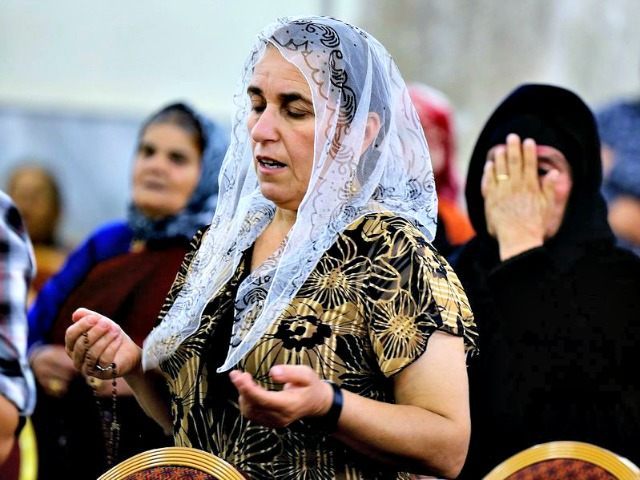Recent reports suggest that over a thousand converts to Christianity from Islam currently live in Italy, but hide their conversions for fear of retaliation from the Muslim community against themselves and their families.
A 55-year-old Egyptian chemical engineer who now works a waiter in a city of central Italy, was a fervent Muslim who converted to Christianity in Italy after the death of his mother and was baptized three years ago.
The man, who asked to remain anonymous to avoid retribution from Muslims, said that the decisive element in his conversion came from seeing Christians with “a humanity more complete than mine” and wanting to find what they had found.
Still, he openly expresses his frustration with having to hide his newfound faith. “I cannot openly practice my Christian faith. I am afraid that some fanatical Muslim may do harm not only to me, but especially to relatives who remained in Egypt.”
“How is it,” he asks, “that Italians who convert to Islam can go on TV and talk about it, and instead I have to hide to avoid retaliation?”
The name Italians are using to refer to the believers who must conceal their religion as “ghost Christians.”
In Islamic countries, conversion to another faith always implies serious consequences. The crime of apostasy is punishable in different ways, from “civil death” (job loss, the denial of education of children and certain rights, breakdown of family ties), to prison sentences or the death penalty.
Yet even when living in western countries, “apostate” Muslims can live under a threat of harm to their own persons, and especially to family members still living in lands with an Islamic majority.
“Even in a land of emigration, the apostate is the subject of disapproval, threats or violence on the part of their community, or of his own family,” said Father Samir Khalil Samir, an Islamic scholar. “Hence the need for converts to live in confidentiality.”
Samir says that much of the problem comes from the holistic Islamic view of religion and society that makes no distinction between one area of life and another.
“Islam is not only a religion but also politics, culture and society. It penetrates into the smallest of matters. There is no separation between faith and politics, and this is why the believer in Allah finds it hard to distinguish Christianity from the West,” Samir said.
“That’s why a Muslim who converts to another religion commits a betrayal of the community: he not only betrays his faith, but also his own people and the nation. In short, one can convert to Islam but it is forbidden to leave,” he said.
“Despite all this, the phenomenon of Muslims who become Christians, thanks to satellite television and the web, is increasingly popular,” he said.
The phenomenon of Muslim converts to Christianity who are forced to hide their faith out of fear of being assassinated by Islamic extremists is nothing new. An article in the Italian daily Corriere della Sera back in 2003 bore the title “The new Catacombs of Islamic Converts.” It investigated Muslim converts to Christianity in Italy who decried their profound spiritual and human solitude in the face of state institutions that do not protect them and the silence of the Church itself.
Nor is Italy alone in the experience of converts from Islam living in fear in the West. In 2014, a Christian group launched a national network of safe houses in Britain for converts from Islam who were facing ostracism or violent reprisals for “apostatizing.”
Reports stated that at the time there were between 1,100 and 3,000 former Muslims at risk in Britain.
The chief organizer of the group called Christian Concern, Andrea Williams, said: “We are motivated by a deep sense of love and compassion for those that feel trapped in a situation from which they cannot escape.”
“The penalty for them at best is to be cut off from their family; at worst they face death. This is happening not just in Sudan and Nigeria but in east London. The government has failed to deal with the rise in anti-Christian sentiment,” she said.
Follow Thomas D. Williams on Twitter @tdwilliamsrome

COMMENTS
Please let us know if you're having issues with commenting.